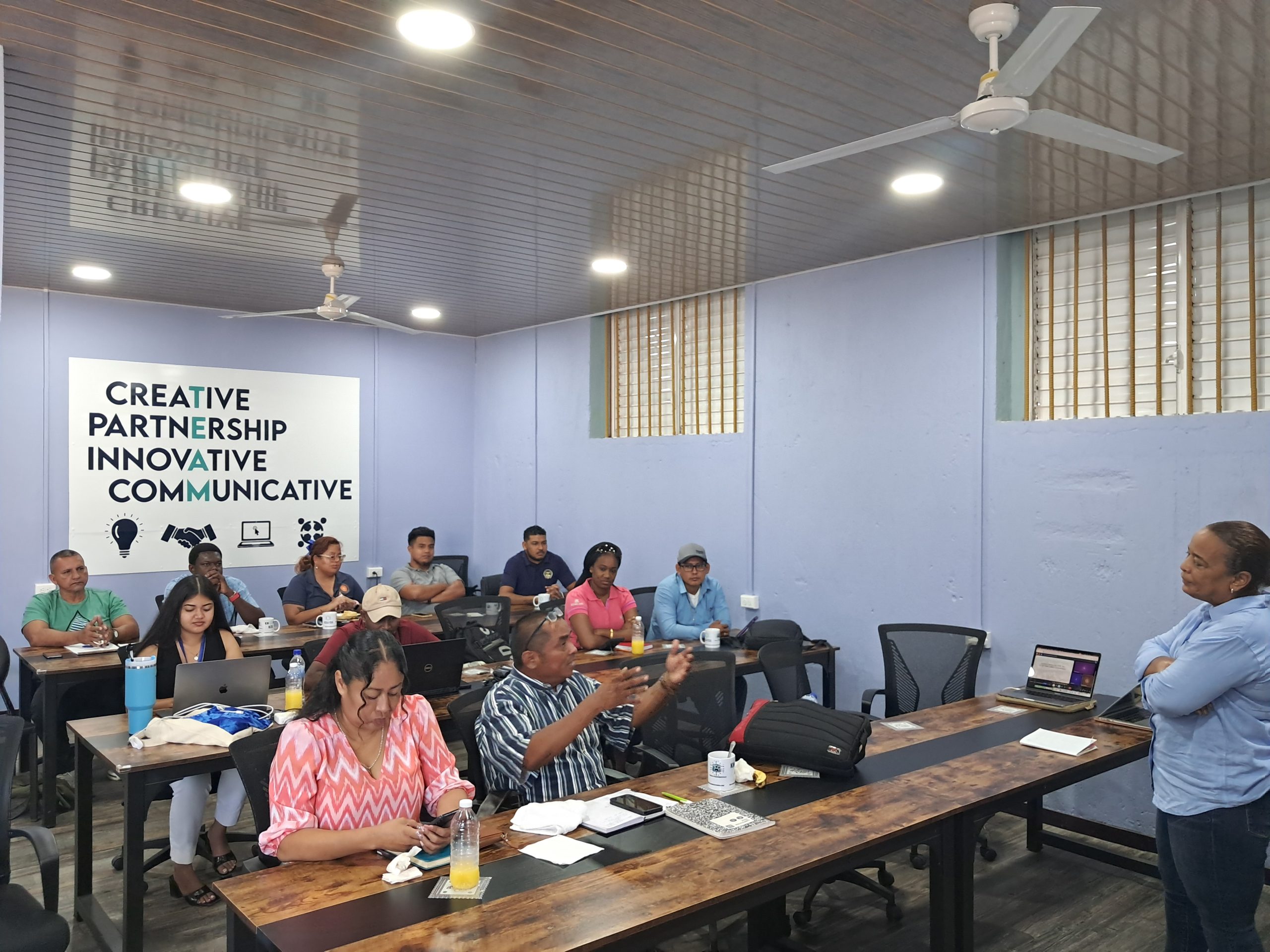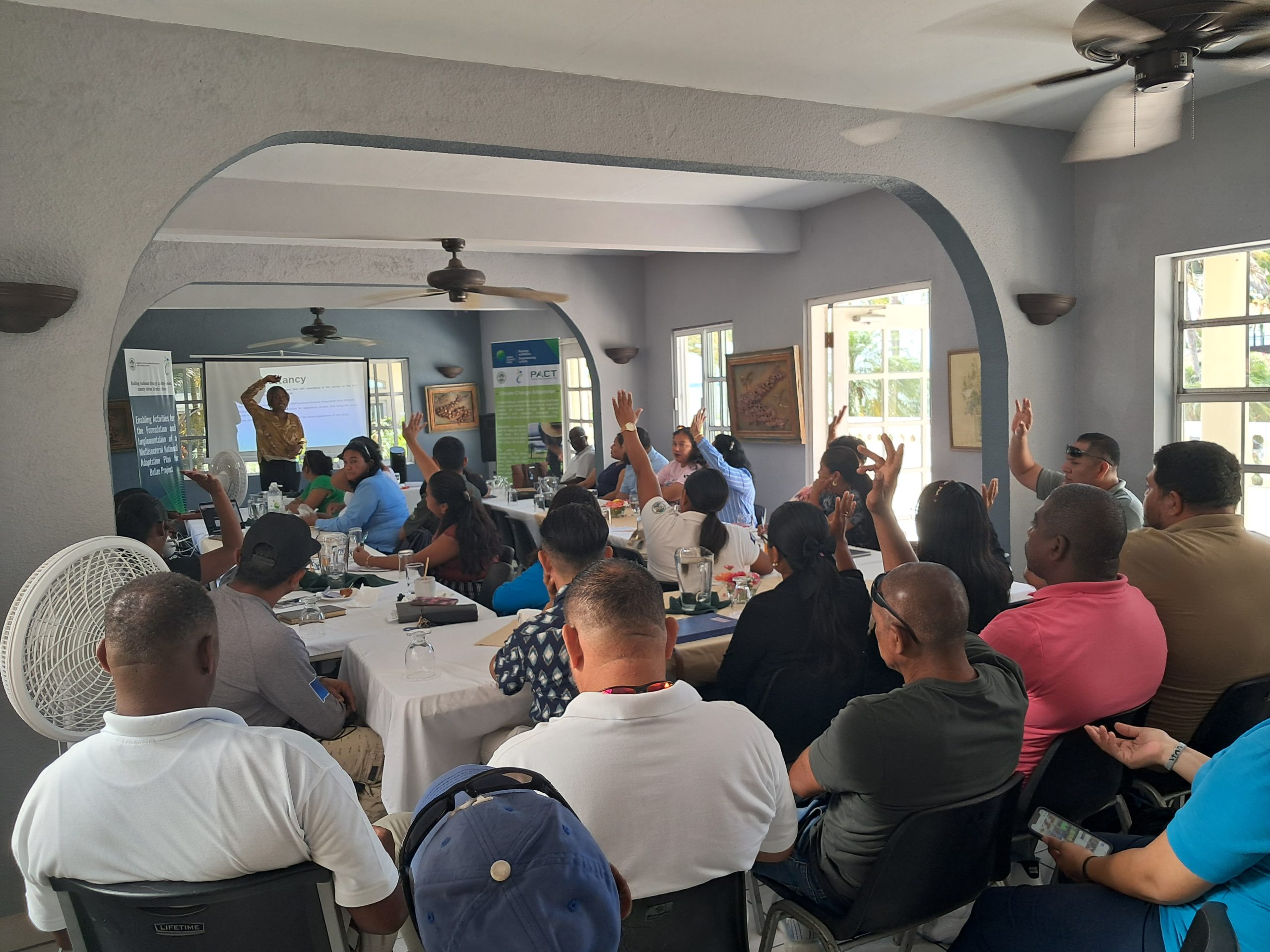Jeanette Garcia
First published August 28, 2019
The objective of this project is to improve the access, use, and quality of maternal-neonatal and child health services in Corozal, Orange Walk, and Cayo districts, to contribute to the reduction of maternal and child morbidity and mortality in Belize. It is part of the regional Salud Mesoamerica Initiative (SMI), a public-private association intended to improve the targets under Goal 3 of the Sustainable Development Goals (SDG). Actors under this initiative include the Melinda Gates Foundation (BMGF), the Carlos Slim Health Institute (ICSS), Spain’s International Development Cooperation Agency (AECID), the Inter-American Development Bank (IDB), and the countries in the Mesoamerican region.
The Government of Belize has always taken pride in its actions in addressing health, particularly for achieving SDG 3 Ensure healthy lives and promote well-being for all at all ages. This project is the third iteration of efforts that includes programmes and actions that focus on providing services under targets 3.1, 3.2, 3.4 and 3.7. that build upon each other to improve reproductive and child health indicators ranging from increasing the availability of key health inputs and establishing new health norms, to increasing coverage and the quality of health services.
The first SMI operation (USD 1,250,000) began with two strategies- (1) strengthening community health interventions; and (2) introducing a supply-side Results based Framework (RBF) scheme at the level of the service provider. For strategy one, the SMI provided help to the Ministry of Health (MOH) to reinvigorate the Community Health Worker (CHW) programme by standardizing CHW roles and responsibilities, providing basic provisions, increasing numbers and developing and offering new training programmes. The second strategy focused on addressing monitoring and quality assurance indicators by establishing a “Pay for Performance” fund that incentivized improvements on maternal and child indicators.
The commitment to and achievements of this intervention was so impressive, that it justified the second operation under the SMI (USD 750,000). Building on the first community level strategy (1), the new work encompassed a review of the CHW programme. This led to financing opportunities to improve community organisation, participation and awareness by targeting and engaging residential volunteers within these communities to address some of the gaps in health prevention services and complement the work of the CHWs and rural health nurses. The second strategic action (2) expanded its work to reconcile incentives against the SMI performance framework indicators and was bolstered by eight additional interventions to ultimately accelerate and support the sustainability of the quality indicators in the supply-side of health services.
The ongoing SMI (USD 592,000) builds on the others to improve health services by improving the coverage of services that are demand driven, i.e. (care-seeking) as well as cultivating increases in demand and consolidating these actions this by supplementing the supply (of health services) through the expansion of the community participation strategy in the targeted communities. Evidence-based decision making is fostered by expanding the MOH’s health dashboard to display information for all country’s regions, and to incorporate new health indicators from the Belize Health Information System (BHIS) and from quality measurements.
Ms. Garcia is an independent consultant in the field of Development. She is a post-graduate of the University of the West Indies, with over two decades worth of experiences in trade and development economics and project management.



